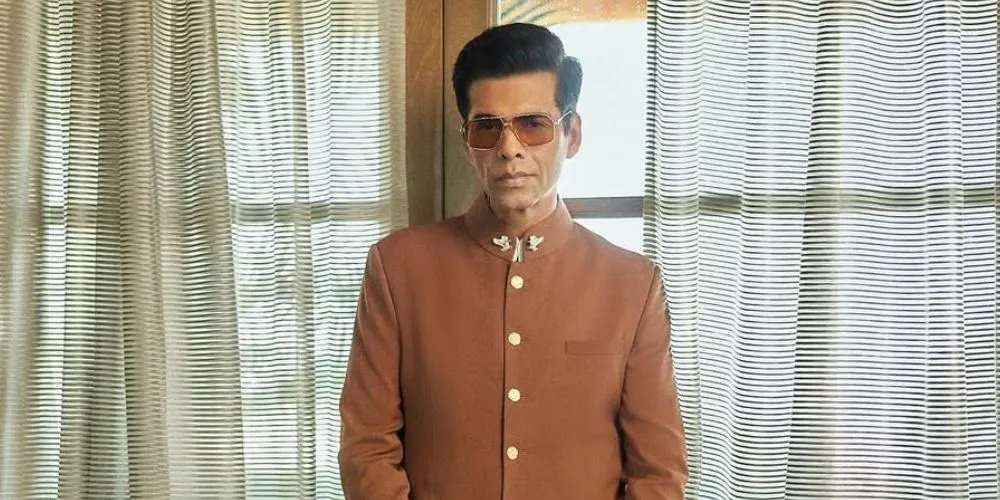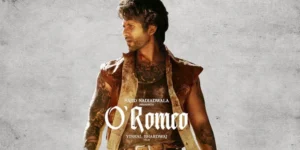
In a move that underscores a growing legal trend in the entertainment industry, acclaimed filmmaker and producer Karan Johar has approached the Delhi High Court seeking protection of his personality and publicity rights. The plea, filed on Monday, September 15, 2025, highlights the widespread and unauthorized misuse of his name, image, and likeness on various digital platforms and commercial products.
Johar’s petition comes on the heels of similar landmark victories for actors Aishwarya Rai Bachchan and Abhishek Bachchan, cementing a pattern where prominent personalities are taking legal action to reclaim control over their public personas in the digital age. The case was heard before Justice Manmeet Pritam Singh Arora, who sought clarifications from the filmmaker’s counsel before proceeding with the matter.
The primary grievance raised in petition by Karan Johar is the illegal commercial exploitation of his identity. His counsel, Senior Advocate Rajshekhar Rao, highlighted instances where third-party websites and platforms were unauthorizedly selling merchandise such as mugs, T-shirts, and posters bearing Johar’s name and image.
Rao contended that such misuse extends beyond simple fan pages and is a monetized activity, which infringes upon the filmmaker’s right to control his persona. “I have a right to ensure that no one unauthorisedly uses my persona, face or voice,” Rao argued in court. The plea also pointed out the misuse of his name and photographs on various social media pages and domain names, some even allegedly being used for fraudulent activities like raising funds. This broad misuse, Johar’s team argued, causes financial detriment and dilutes the goodwill and reputation he has built over a career spanning decades.
Karan Johar’s legal action is a direct continuation of a precedent recently set by the Delhi High Court. Just days prior, the court had passed an interim order protecting the personality rights of Aishwarya Rai Bachchan and Abhishek Bachchan. The Bachchans’ pleas were specifically aimed at curbing the unauthorized commercial use of their identity, including the alarming issue of AI-generated content, deepfakes, and morphed videos.
In the case of Aishwarya Rai Bachchan, the court had observed that the misuse of her persona—for instance, through unauthorized products like mugs and T-shirts—was not only financially harmful but also affected her dignity and goodwill. Similarly, Abhishek Bachchan’s plea highlighted the misuse of his name and likeness on various online platforms for commercial gain. These rulings have established a strong legal foundation that acknowledges a celebrity’s persona as a valuable asset that is protected from being exploited without consent.
The increasing prevalence of these lawsuits reflects the challenges posed by modern technology and the digital marketplace. With the rise of print-on-demand services, e-commerce, and the viral nature of social media content, it has become easier than ever for individuals and entities to illegally profit from a celebrity’s fame. These legal battles are therefore crucial in defining the boundaries of intellectual property and personality rights in an increasingly interconnected world.
During the hearing, Justice Arora acknowledged Karan Johar’s concerns but also cautioned against a “blanket injunction” that could stifle creative expression. The judge indicated that while the court could pass take-down orders for specific infringing pages and websites, a sweeping order could also harm fan pages or content that falls under the category of parody or fair use.
Justice Arora advised Johar’s counsel to categorize the alleged violations, distinguishing between disparagement, merchandise sales, and domain misuse, so that specific instances could be targeted. This suggests that while the judiciary is supportive of protecting celebrity rights, it is also mindful of the balance between commercial interests and free expression.
The court has given a clear indication that it is prepared to pass orders directing platforms to act on specific violations, stating, “If they don’t act, you come to court.” This move effectively places the onus on social media companies and e-commerce platforms to have robust systems for addressing and removing infringing content, or face legal repercussions.
Legal action by Karan Johar, following in the footsteps of the Bachchans, is a significant moment in the evolution of Indian law. It solidifies the legal status of a celebrity’s identity as a form of intellectual property and sets a crucial precedent for countless other public figures who have faced similar misuse. As the digital landscape continues to evolve with new technologies like AI and deepfakes, these legal battles will play a vital role in shaping the future of image rights and personal dignity.




